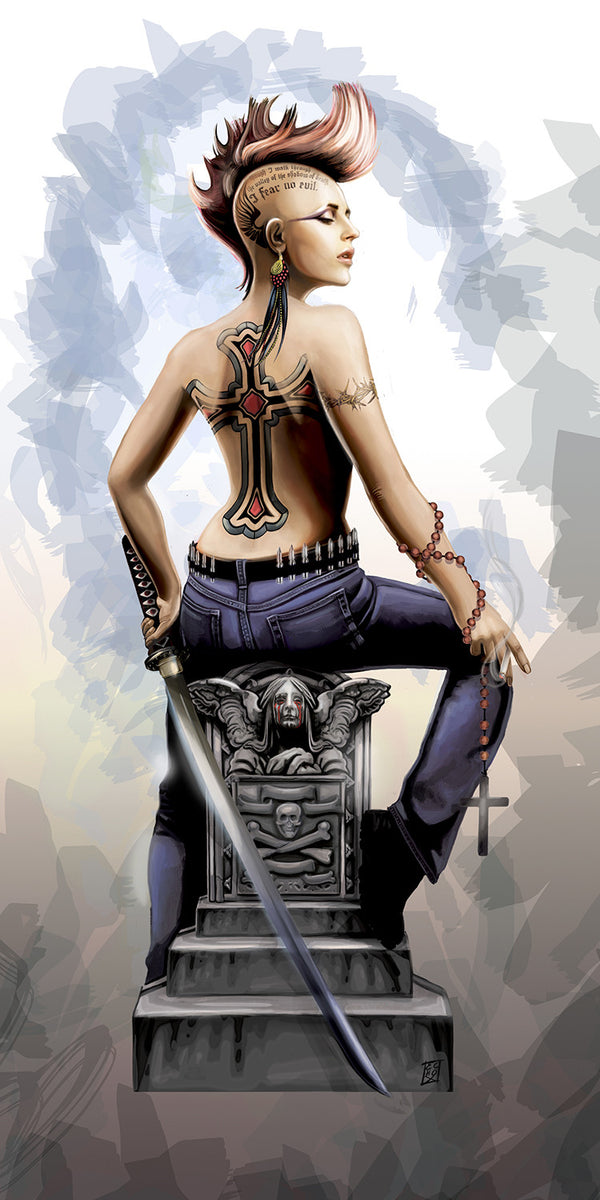

After all, if free will and personal rights are paramount, what about – say – the right and freedom of the monstrosities of the Abyss to existence, or the right of a Mage to defy death and become a Lich or to destroy a foe’s soul if that is their true will?) However, none of the great orders of Mages are perfect, and all are infiltrated by Left-Hand Path Mages to various extents. (For instance, the Free Council is all about personal freedom… which you’d think would tend to make them something of an inadvertent haven for the nastier variety of Mage. Yet more types of mages exist out in the periphery, practicing forms of magic that the traditionalist Diamond, their Council allies, and their Seer foes alike all consider to be beyond the pale – Reapers who destroy or steal souls, Scelesti who tamper with the Abyss itself, and so on. Far more important is the interplay between the various major sects of Mages – the Diamond alliance of four flavours of traditionalist faction (one martial, one covert, one religious, one political), the modern Free Council who are allied with the traditionalists, and the hated Seers of the Throne, who far from battling the Exarchs choose to serve them, earning wealth and temporal power in return for binding Sleepers deeper into the Lie. In this context Atlantis is nothing more than one of many myths that Mages tell themselves about the Time Before – the era prior to the Exarchs establishing the Lie – and as such the Atlantis stuff genuinely is not that important. If the Supernal World is the dwelling place of the archetypal forms of all things that exist, the Abyss is the abode of rejected universes and entities denied existence – but which hunger for it constantly. They must beware, however, of both their own hubris (which can cause them to become lost in their magical workings altogether) and of Paradox, a dark force which may arise from the Abyss whenever magic is worked (especially if it is done irresponsibly). Having become aware of the Lie, Mages spend their time in pursuit of the occult mysteries they perceive all around them – even more than Hunters, they’re the World of Darkness splat most likely to set up one of those red string conspiracy boards in their home – thus advancing their understanding of the Supernal World and the power they can access through the archetypes therein (which is how their spellcasting works). The idea that the Fallen World is all that exists is a Lie crafted by the Exarchs, shadowy powers from the Supernal World. The idea is that the Awakened – the Mages of the world – are those humans who, for whatever reason, have had their awareness opened up to the Supernal World, the higher realm of archetypes and ideals which the Fallen World, the place of impure matter and grubby compromises, is a tepid shadow of.

The main thing which people who otherwise don’t know much about the first edition of Awakening seem to latch onto about it is “Isn’t that the one which is all about Atlantis?” the Atlantis stuff isn’t exactly gone here, but it’s relegated to a brief appendix to illustrate just how inessential to the core concept it is.Īs far as that core concept goes, it’s a delicious broth of Neoplatonism and Gnosticism. In the case of Mage, the second edition is also an opportunity to restate that core identity in a way which wins over more people.
#AKASHIC BROTHERHOOD CONCEPT SERIES#
Since both the World of Darkness and Chronicles of Darkness series are both active concerns, the various Chronicles games no longer need to be conflicted between the desire to do something new and the commercial incentive to provide a safe harbour for fans of the equivalent World of Darkness line, which means they can be more confident in their own, distinct identities. Onyx Path’s second edition of Mage: the Awakening continues the general trend of second edition Chronicles of Darkness games of greatly refining and refocusing the concepts of their often-muddled first editions.


 0 kommentar(er)
0 kommentar(er)
